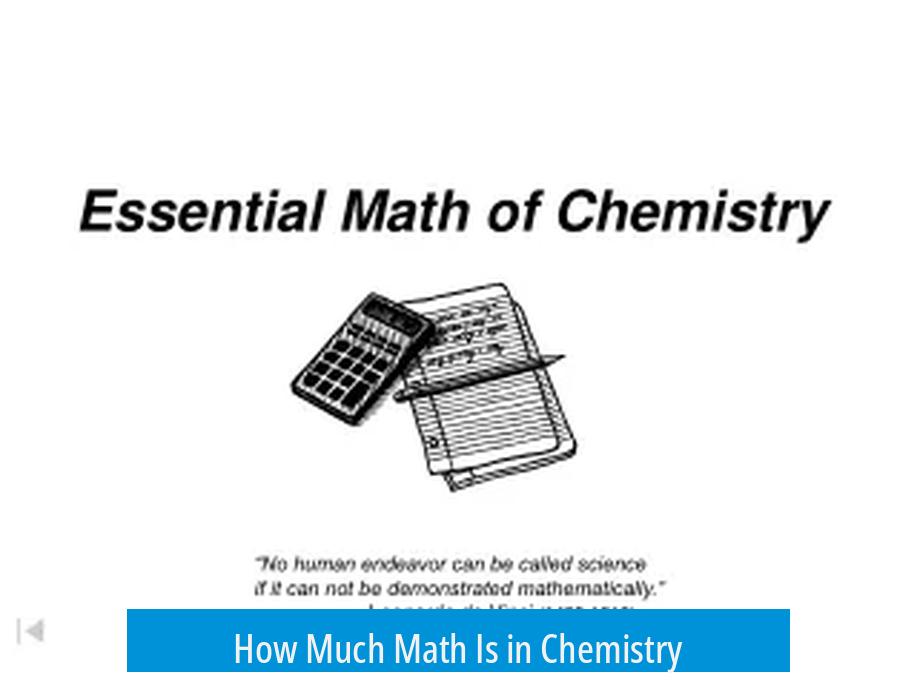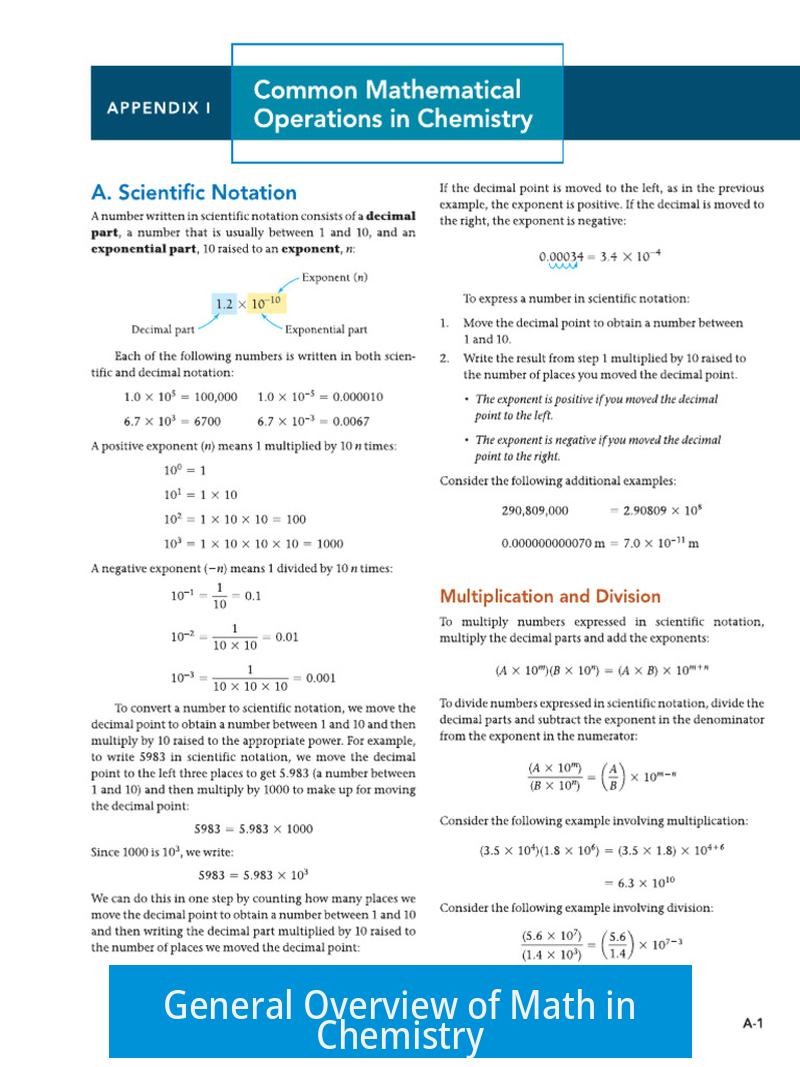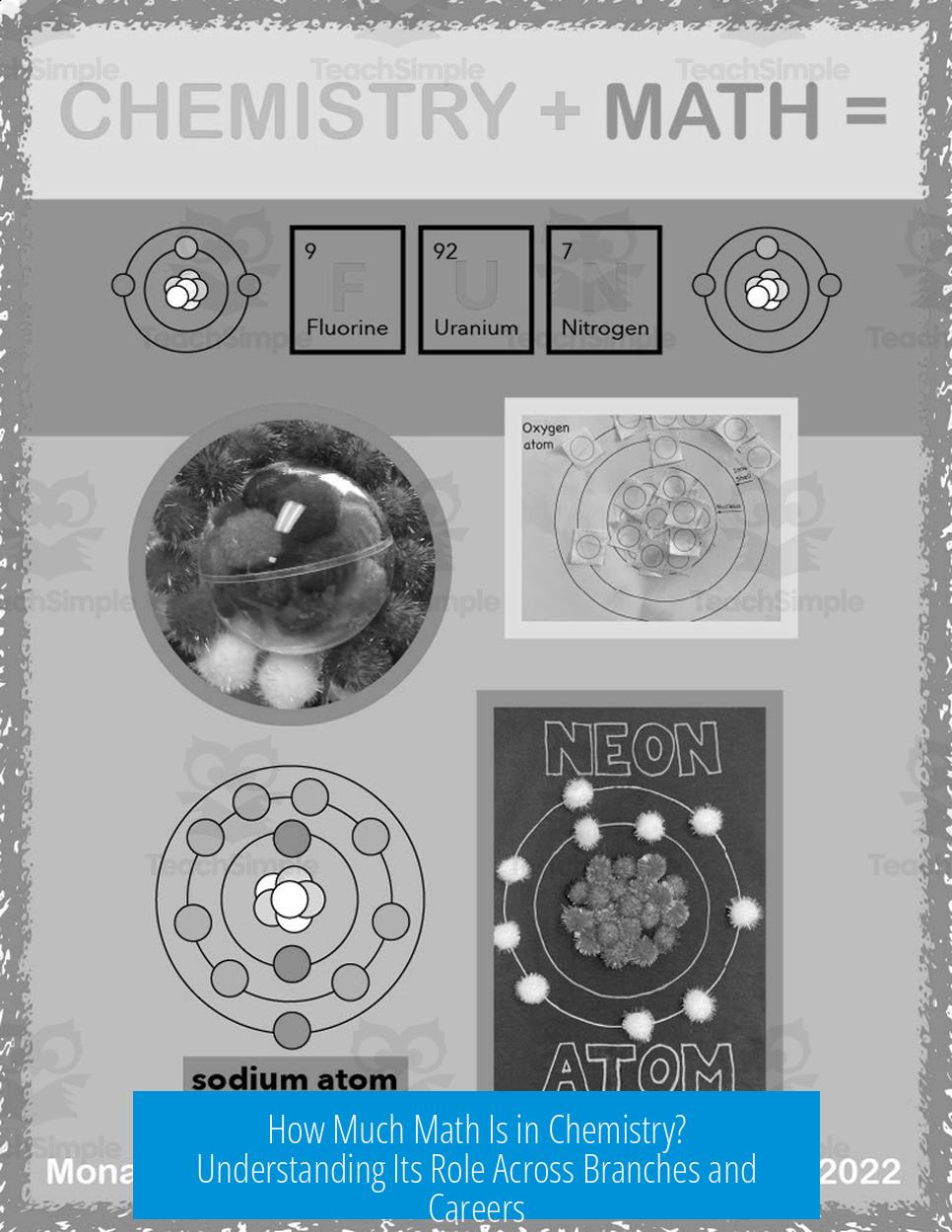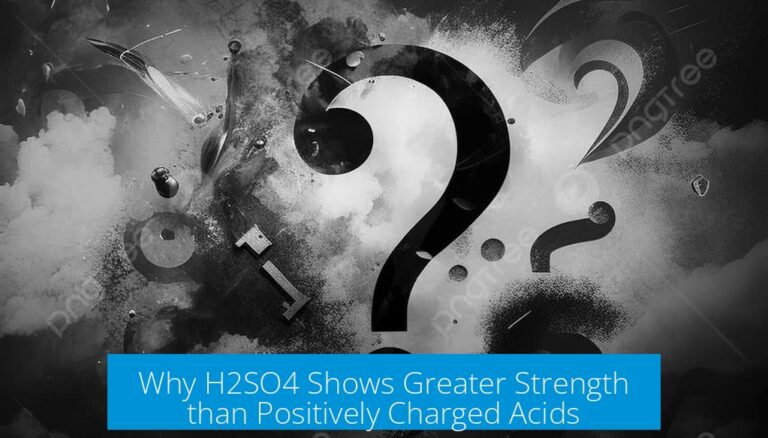How Much Math Is in Chemistry?

Chemistry involves varying levels of mathematics depending on the branch and study depth, ranging from basic algebra to advanced calculus and linear algebra. The amount of math needed depends largely on the specialization and the education level pursued. This article explores the scope and types of math required in different chemistry areas, educational demands, and real-world applications.
General Overview of Math in Chemistry

Chemistry intrinsically relies on math as its foundation. While some branches demand minimal math, others require complex mathematical understanding similar to physics. Across faculties, math connects chemistry to applied sciences such as nuclear, physical, and analytical chemistry.
Students cannot avoid math entirely, but the intensity varies. Many will apply advanced math rather than master it in depth like physicists. A typical university chemistry program usually includes mandatory math-heavy courses, especially in physical and theoretical chemistry.
Math Requirements by Chemistry Branch
| Chemistry Branch | Math Level and Topics | Comments |
|---|---|---|
| Organic Chemistry | High school algebra and countingBasic stoichiometry (e.g., M1V1 = M2V2) | Minimal math beyond basic algebra.Math is rarely complex. |
| Inorganic Chemistry | Algebra, Group Theory | Some abstract math involved but mostly algebraic. |
| Physical Chemistry | Multivariable calculus, differential equations, linear algebra | Most math-intensive undergraduate subfield.Concepts like the Schrödinger equation are core. |
| Theoretical Quantum Chemistry | Advanced calculus, non-linear algebra, numerical methods | Graduate-level complexity.Heavy use of mathematics. |
| Biochemistry | Mostly algebra and some calculus | Variable depth; calculus sometimes optional.Often integrates with physics requirements. |
| Analytical Chemistry | Algebra, statistics, basic calculus | Calculations usually routine,often supported by software or spreadsheets. |
| Nuclear Chemistry | High-level math including thermodynamics and formula manipulation | Requires considerable mathematical rigor. |
Common Math Topics in Chemistry
- High School Level: Basic algebra, solving for variables, logarithms (acid-base concepts).
- College Level: Calculus (up to Calc 3), differential equations, linear algebra, statistics, group theory.
- Advanced Topics: Numerical algorithms, Fourier transforms (spectroscopy), multivariable calculus, matrix operations.
Math in Chemistry Degrees and Courses
Most chemistry bachelor’s programs mandate at least calculus 2, linear algebra, and differential equations. Some schools require calculus 1 through 3 plus statistics. Physics courses commonly integrated also involve significant math.
General chemistry courses in high school usually involve only algebra and basic math skills. Graduate study intensifies the mathematical complexity, especially in physical, nuclear, and theoretical chemistry.
Math Use in Professional Chemistry Careers
Day-to-day roles in synthetic, organic, or process chemistry often require only basic algebra or arithmetic. Many computations are handled with software tools like spreadsheets.
In analytical chemistry and quality control, routine algebra and statistics dominate calculations. More math-intensive fields such as nuclear or computational chemistry demand higher-level math skills regularly.
Challenges with Math in Chemistry Education
Physical chemistry and quantum chemistry evoke the most difficulties due to advanced calculus and abstract concepts. Understanding when and how to apply math poses the main challenge rather than math complexity alone.
Students struggling with algebra may find even basic chemistry challenging. Mastery of math concepts acts as a vital tool and can determine academic success in chemistry courses.
Practical Math Examples in Chemistry
- M1V1 = M2V2 for dilution calculations.
- Calculating pH with logarithmic scales.
- Beer’s law implemented via spreadsheets.
- Titration curve analysis using derivatives and plotting.
- Quantum chemistry involves solving equations for probability densities and energy states.
- Fourier transforms applied in vibrational spectroscopy.
Key Takeaways
- Chemistry uses math extensively, but intensity depends on specialization.
- Organic and synthetic chemistry require minimal math beyond basic algebra.
- Physical and theoretical chemistry demand advanced calculus, linear algebra, and differential equations.
- Biochemistry and analytical chemistry differ in math depth, often incorporating algebra and statistics.
- Most chemistry degrees require at least calculus through Calc 2 or 3 plus linear algebra and differential equations.
- Many practical chemistry jobs rely mostly on basic math and computational tools.
- Strong algebra skills are essential; applying math concepts can be more challenging than performing calculations.





Leave a Comment